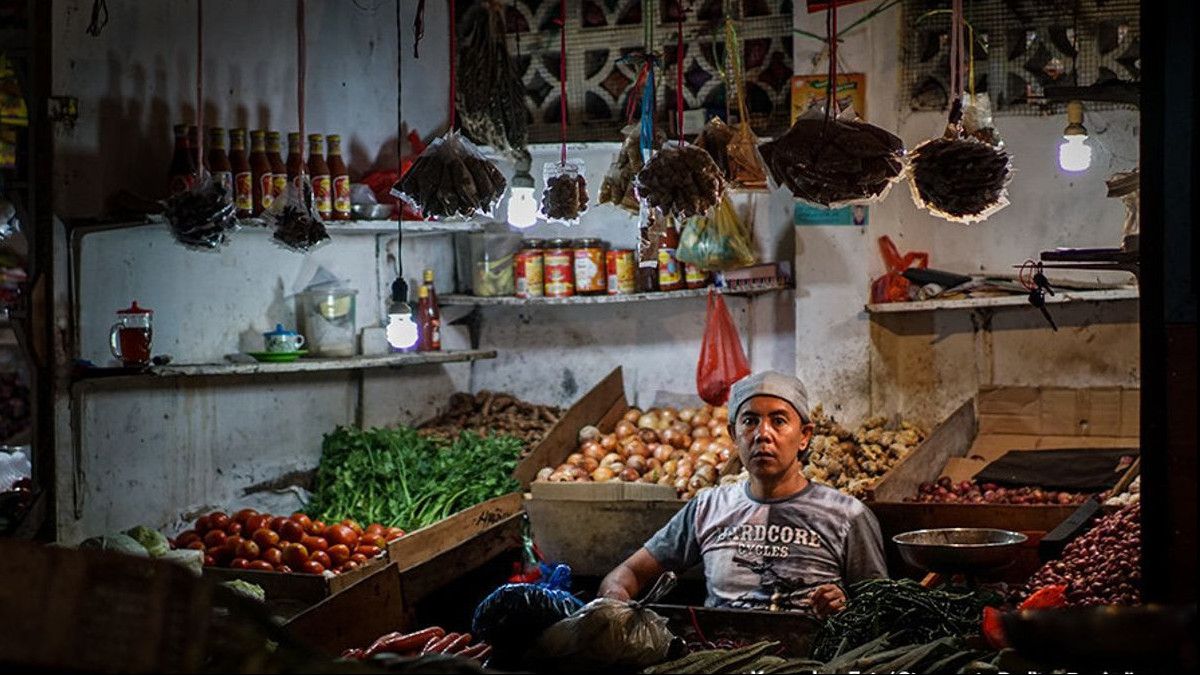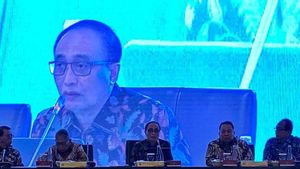JAKARTA - Bank Indonesia (BI) responded to the latest development of inflation based on the Consumer Price Index (IHK) in August 2022 which fell to 4.69 percent year on year (yoy) from the previous 4.94 percent in July 2022.
Head of the BI Communications Department Erwin Haryono said the condition mainly came from a decrease in the price of volatile food groups and a decrease in administrative priced inflation, amid rising core inflation.
"In the future, the pressure of IHK inflation is expected to continue, among others, driven by the high price of energy and global food," he said, quoted on Friday, September 2.
According to Erwin, last month's record was known to have deflation of 0.21 percent month to month (mtm) after in July inflation of 0.64 percent.
"The core inflation and inflation expectations are expected to increase due to rising non-subsidized fuel prices (BBM) and volatile food inflation, as well as increasing inflationary pressures in terms of demand," he said.
Erwin added that these developments are expected to encourage inflation in the 2022 and 2023 periods to potentially exceed the upper limit of 3 percent plus minus 1 percent. Therefore, stronger policy synergies are needed between the central and regional governments and Bank Indonesia for control measures.
"Bank Indonesia continues to strengthen synergies between the center and the regions to maintain price stability and improve food security through the Coordination Meeting of the Inflation Control Team (TPIP and TPID), as well as accelerate the implementation of the National Food Inflation Control Movement (GNPIP)," he explained.
In detail, Erwin said that core inflation in August 2022 was maintained at 0.38 percent mtm, although it increased compared to inflation in July 2022 which was 0.28 percent.
Likewise, on an annual basis, the increase was 3.04 percent yoy from the previous 2.86 percent.
Meanwhile, the volatile food group in August 2022 recorded a deflation of 2.90 percent mtm from 1.41 percent in the previous month. Meanwhile, it is said to be in the position of 8.93 percent yoy on the end of August.
Then for goods regulated by the government or administrative prices, incised inflation 0.33 percent mtm and 6.84 percent yoy.
"The development of administrative priced inflation is mainly influenced by household fuel inflation and electricity rates, along with the adjustment of non-subsidized energy prices," Erwin concluded.
The English, Chinese, Japanese, Arabic, and French versions are automatically generated by the AI. So there may still be inaccuracies in translating, please always see Indonesian as our main language. (system supported by DigitalSiber.id)









